1) Why do tattoo artists need consent forms?
The primary purpose of a tattoo consent form is to educate your client about the procedure they will undergo before it occurs. This is also when the client can ask you, the tattoo artist, any questions they have for their own peace of mind. Use this Tattoo Consent Form Template from Jotform to gather client consent, including an e-signature.
This form template contains form fields that ask a client to provide contact information as well as any medical conditions and their medical history. The template also includes an important pre-procedure checklist and uses the e-signature widget to capture the patient’s signature digitally to confirm that they agree to all of the terms.
Tattoo artists can use signable forms, like our ready-made Tattoo Consent Form, to ensure their shop isn’t liable for any accidents that may occur. Having a legally binding, signed waiver can absolve artists of financial and legal liability if their clients are dissatisfied with the services, or if something happens to the client or their tattoo during or after the session.
2) What should be included in tattoo consent forms?
It’s common practice to outline terms and conditions that work for you and your shop, and have your clients read and acknowledge them before the ink hits their skin. If you don’t have any documentation of a client’s consent, you might be more vulnerable to legal actions from your clients down the line.
From a professional standpoint, it’s best to cover all your bases and be prepared for any situation. Not only will this net your shop positive and professional client interactions, it will also boost your professional reputation within your community and beyond.
3) What can you do with online forms?
Another important aspect of running a successful tattoo shop or independent tattooing business is making sure that every appointment, identification card, payment, and client-artist communication is recorded for future reference in case something comes up. By using Jotform, your tattoo shop can collect client contact information, such as phone numbers and emails, a history of payments and tips, and client waivers in one central place.
With Jotform, you can create your consent forms once, and send them multiple times to multiple clients. You can also create tattoo forms for special occasions like flash days, holiday or Friday the 13th specials, or more.
4) Case of minors depending on the location
Depending on the state where your business is located, you may want to prepare tattoo consent forms for minors in case an individual under 18 comes to your shop with their parental guardian for a tattoo. Not only will creating these forms in advance save you time, but you and your coworkers will also feel more prepared for anything that might come your way during a shift.
Obviously, if you live in a state that doesn’t allow minors to be tattooed, you won’t have to worry about creating a form. But if you live in a state that does allow minors, or minors within a specific age range, to be tattooed, you’ll need a special form for them. You must get parental or guardian consent before giving a minor a tattoo.
Before creating your parent/guardian consent form, make sure that you’re well educated on your state’s laws on tattooing minors. For example, some states require that the guardian be present during the entire tattooing process and give written consent, while other states ask for documented proof of guardianship to the minor involved and notarization of the consent document. Other states just require written consent or a mix of the aforementioned.
If you’re unsure about your state’s laws, do a bit of research beforehand. And if you reside in a country outside of the United States, make sure that you’re well informed about your country or region’s laws on tattooing minors before you open up shop. For example, in the U.K. a person must be above the age of 18 to get a tattoo. But in Canada, you can potentially get a tattoo under the age of 18 — it depends on the province where you live.
5) How to write a tattoo consent form
Now that you know more about why it’s important to have tattoo consent forms, especially for specific clients like minors, you might be wondering how to start writing your own consent forms. Your consent forms should not only reflect state regulations for tattooing but also your shop’s specific policies. For example, your tattoo shop might follow specific payment or scheduling processes. By including that information in your form, you can be as transparent as possible with your clients and guarantee less confusion down the line.
To start creating your own form, first gather standard information from your clients. Include fields for your clients to fill out their name, age, birth date, phone number, email, and address. To be extra thorough, you can even add a section of your form for your client to upload identification documents or cards.
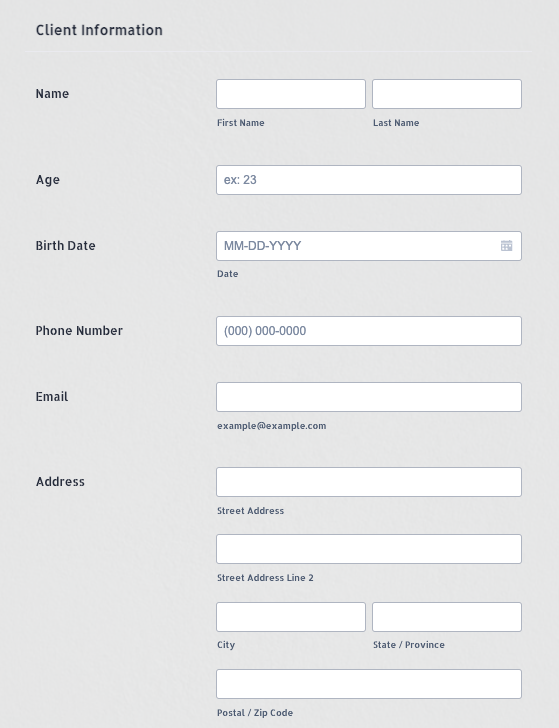
We recommend always including a pre-procedure, or pre-tattoo, questionnaire for your clients to fill out before they get tattooed. Ask them if they’re currently under the influence of any drugs or alcohol, if they’re currently pregnant or nursing, if they have a transmittable disease, or if they have any skin conditions that might interfere with the tattoo.
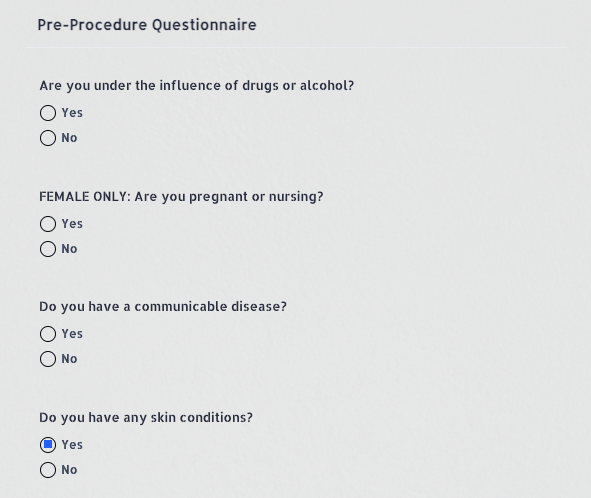
You can also leave room toward the end of your form for your clients to include extra information about any skin or medical conditions. It’s better to be overinformed than underinformed. The more you know, the better you’ll be prepared for the tattoo session.
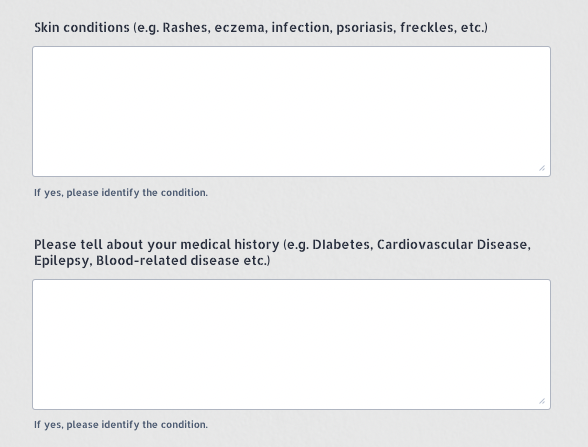
Another must-have section in your tattoo consent form is the acknowledgement and waiver. This part of your form covers all your bases when it comes to getting client consent and laying out your policies. By agreeing to this part of your form, your clients give their consent to all of your statements, which prevents them from holding you liable for anything that’s explicitly mentioned in the document. Ask your clients to acknowledge things like
- The tattoo they’re getting is a permanent body modification
- There are no refunds
- Aftercare of the tattoo is the client’s responsibility
- The client can’t hold the artist responsible for claims, expenses, damages, etc.
- And more, depending on the needs of the tattoo shop or artist
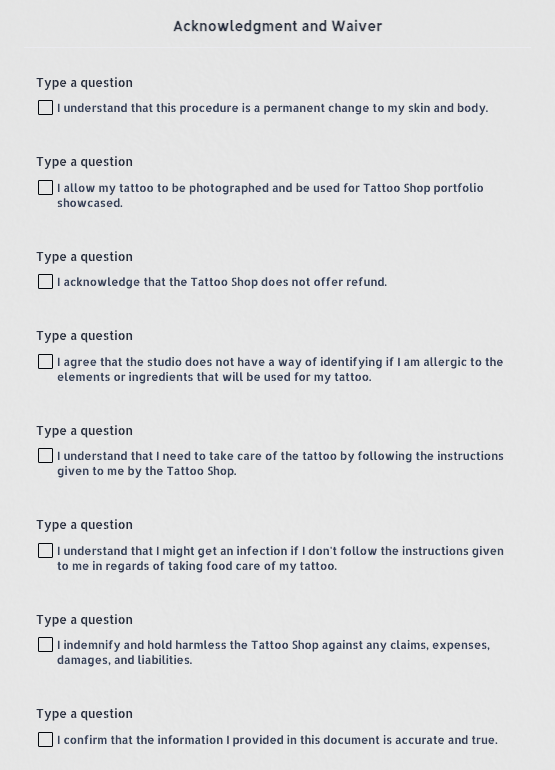
Of course, don’t forget to include sections for your client to add their legally binding e-signature and fill out the date the form was signed.
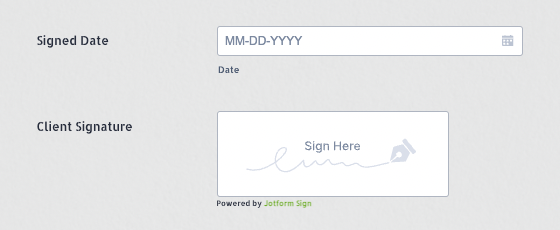
After including all the essentials in your form, consider customizing your document to add information that’s unique to your process. For example, some artists like to mention
- How much they charge for an hour of work
- How much they charge for custom tattoos versus flash tattoos
- The payment methods they accept
- The days and times they normally tattoo
- Specific boundaries they have with their clients
- And more
It’s better to include more information about your processes and guidelines so your client knows that they’re getting into.
Additionally, when you’re creating your forms, make sure you ask your clients certain questions about themselves. For example, it’s very beneficial to know if your client has any allergies to specific inks or aftercare bandages so you can prevent them from having an allergic reaction. Or, if they’re prone to fainting during sessions, you’ll know that you should remind them to bring snacks and electrolyte-packed drinks to their appointment.
Consider asking if they’re comfortable with you using their tattoo in your public portfolio, if they’ve ever gotten a tattoo before, what’s the longest they’ve sat for a tattoo, and so on. You can save yourself a lot of inconvenience down the line by including thoughtful questions about your clients in your tattoo consent forms.
6) Other forms that you can use
Now that you have all the information and tools you need to run a successful tattoo shop and build professional consent forms, all you need to do is start creating your own forms! Jotform offers a wide variety of ready-made tattoo consent forms to get you going.
Consider using our appointment form templates to schedule consulting sessions or hour-long tattoo sessions with your client, our tattoo request forms to gauge client interest and their tattoo ideas, our tattoo waitlist forms for new clients trying to get on your books or subscribe to your newsletter, and piercing consent forms if your shop also offers piercings.
7) How do you do a tattoo waiver?
One of the most important aspects of running a tattoo shop is following all of the proper protocols, procedures, and guidelines. If a person or business tattoos someone under 18 years of age, for example, they could be liable for criminal charges or civil penalties.
8) How should you prepare before tattooing someone else?
Before tattooing someone else, you must have the necessary health and hygiene measures in place. The person doing the tattooing must be careful with the needle to avoid contamination. The tattooing instruments must be sterilized with an antibacterial solution before use. You should also ask your client if they have any allergies.
9) How should you price a tattoo as an artist?
Understanding how to price a tattoo is a problem for most tattoo artists. An experienced artist must be able to look at a client and give them an idea, even before they get started, of what it will cost. The good news is that there are some tools you can use to estimate the cost of your tattoo idea.
User Reviews
"This form template helps me to be more efficient at our tattoo shop. The clients found it easy to fill out, and I could customize it to meet our specific requirements. It made the whole consent process smooth and efficient."
Sam K. - 07/29/2024












































